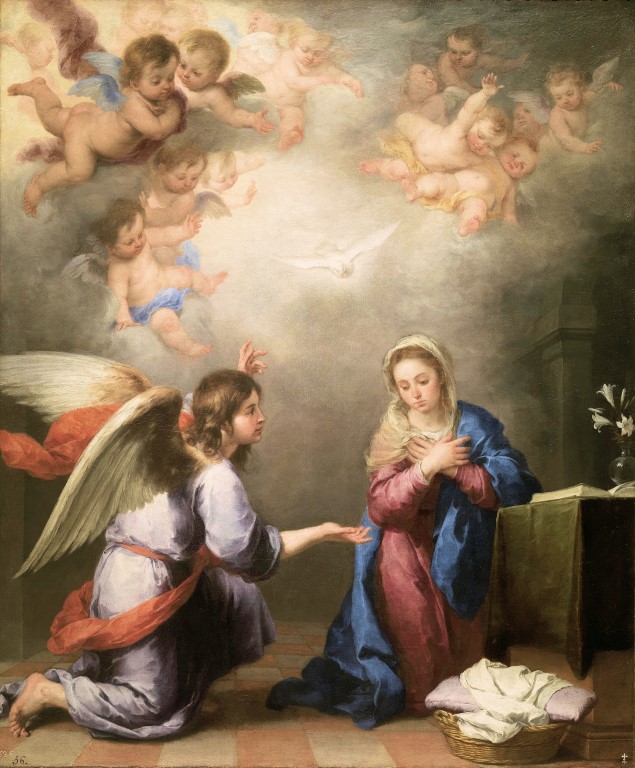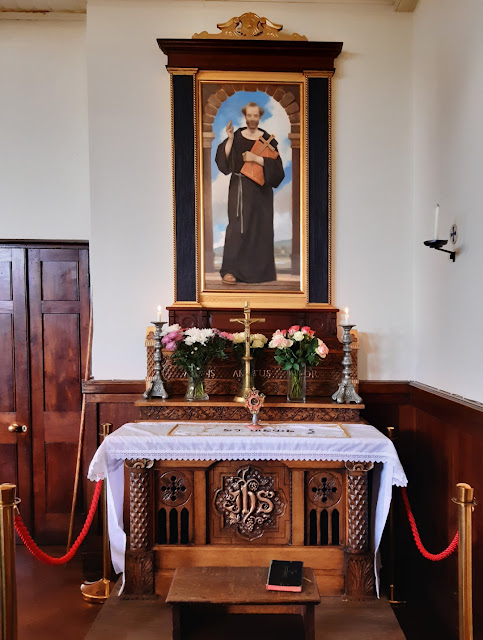How would the Old Mass help? I
Personal experience
In response to my post on the Halloween Mass, Puella Paschalis asked how greater use of the Classical Rite would help to prevent or decrease liturgical abuses. We might also ask whether it is better to push for greater freedom of the Classical Rite or simply to further the more reverent celebration of the Novus Ordo.
Until December 2001, my own position was that in the vast majority of parishes in the Church, the Novus Ordo was well established and that, practically speaking, it was not worth expending much energy on the Classical Rite. I have many friends who only celebrate the Novus Ordo, who do so with great dignity and reverence, and whose parishes are beacons of good practice. Some of them were a little dismayed by my conversion to being a Classical Rite enthusiast: I am sure some of them discounted it as Tim Finigan being a bit inclined to seek a lost cause and a last ditch.
What brought about my conversion was something quite simple. I was asked to celebrate a funeral Mass for a parishioner who happened to be the aunt of a long-standing friend from Oxford days. My friend’s family were all devotees of the old rite and asked me to celebrate the funeral accordingly. I agreed without hesitation: whatever my views on the old rite, I always felt that it was foolish and unfair to persecute those who wanted it. When I got home, I realised that my snap decision left me less than two weeks to learn how to celebrate the rite. Fortunately, I had studied Latin in Rome with Fr Foster and was able to read through the Ritus Servandus and work things out more or less. My friend and near neighbour, Fr Charles Briggs gave me a run-through and I managed without any major gaffes.
From the day of that funeral, I became a passionate supporter of the rehabilitation of the Classical Rite. Frs Basden and Southwell helped me by recommending various books to read, and Michael Davies kindly gave me the instruction booklet, video and a set of altar cards. I progressively devoured Klaus Gamber’s “The Modern Roman Rite”, Alcuin Reid’s “The Organic Development of the Liturgy”, and Cardinal Ratzinger’s “The Spirit of the Liturgy”.
It is hard to pinpoint exactly what brought about such a complete volte face. I think I could summarise it by saying that the celebration of Mass in the Classical Rite brought into sharper focus than I had ever known before the priest’s personal devotion during the Mass; and crucially, the importance of this devotion for the genuine participation of the faithful.
Two things in particular brought about this “sharpening of focus”. The first was the old rite’s constant devotional reminders given by the private prayers of the priest. Psalm 42, the Aufer a nobis, the Oramus te, the longer preparation for the Gospel, the offertory prayers, the prayers before and after communion, and the Placeat tibi all emphasise the priest as a sinner in need of redemption, purification and, above all, humility before the majesty of the action which he is simultaneously participating in as a sinner and making present in persona Christi.
I say “sharpening of focus” because none of these themes of devotion is necessarily absent in a reverent celebration of the Novus Ordo and they can be absent in a hurried and mechanical celebration of the Classical Rite. However, the experience of celebrating the Classical Rite helped to strip away the consciousness of being a “presider” and outline starkly the reality of being an abjectly unworthy minister of such an awesome mystery.
Inextricably tied in with this sense of unworthiness is a very different emphasis on assisting the faithful to participate genuinely in the actio Dei. The priest has little choice in the use of texts. He may choose to add particular collects but this does not have the same impact as the vast range of choices presented by the Novus Ordo in the ordinary prayers of the Mass. In the Classical Rite, the priest is stripped of his power to impose his personality on the Mass. All that he can do to aid the genuine participation of the faithful is to celebrate Mass reverently and devoutly, knowing that his own state of soul is the only important factor in anything that depends on him.
Followers of this blog may contrast this with the huge impact of the priest’s personality in something as aberrant as the “Halloween Mass” or in something as mildly personal as a slightly humorous remark in the introduction to the Mass permitted in the Novus Ordo. To celebrate the Classical Rite can remind any priest of his true place in the Liturgy. (to be continued)
In response to my post on the Halloween Mass, Puella Paschalis asked how greater use of the Classical Rite would help to prevent or decrease liturgical abuses. We might also ask whether it is better to push for greater freedom of the Classical Rite or simply to further the more reverent celebration of the Novus Ordo.
Until December 2001, my own position was that in the vast majority of parishes in the Church, the Novus Ordo was well established and that, practically speaking, it was not worth expending much energy on the Classical Rite. I have many friends who only celebrate the Novus Ordo, who do so with great dignity and reverence, and whose parishes are beacons of good practice. Some of them were a little dismayed by my conversion to being a Classical Rite enthusiast: I am sure some of them discounted it as Tim Finigan being a bit inclined to seek a lost cause and a last ditch.
What brought about my conversion was something quite simple. I was asked to celebrate a funeral Mass for a parishioner who happened to be the aunt of a long-standing friend from Oxford days. My friend’s family were all devotees of the old rite and asked me to celebrate the funeral accordingly. I agreed without hesitation: whatever my views on the old rite, I always felt that it was foolish and unfair to persecute those who wanted it. When I got home, I realised that my snap decision left me less than two weeks to learn how to celebrate the rite. Fortunately, I had studied Latin in Rome with Fr Foster and was able to read through the Ritus Servandus and work things out more or less. My friend and near neighbour, Fr Charles Briggs gave me a run-through and I managed without any major gaffes.
From the day of that funeral, I became a passionate supporter of the rehabilitation of the Classical Rite. Frs Basden and Southwell helped me by recommending various books to read, and Michael Davies kindly gave me the instruction booklet, video and a set of altar cards. I progressively devoured Klaus Gamber’s “The Modern Roman Rite”, Alcuin Reid’s “The Organic Development of the Liturgy”, and Cardinal Ratzinger’s “The Spirit of the Liturgy”.
It is hard to pinpoint exactly what brought about such a complete volte face. I think I could summarise it by saying that the celebration of Mass in the Classical Rite brought into sharper focus than I had ever known before the priest’s personal devotion during the Mass; and crucially, the importance of this devotion for the genuine participation of the faithful.
Two things in particular brought about this “sharpening of focus”. The first was the old rite’s constant devotional reminders given by the private prayers of the priest. Psalm 42, the Aufer a nobis, the Oramus te, the longer preparation for the Gospel, the offertory prayers, the prayers before and after communion, and the Placeat tibi all emphasise the priest as a sinner in need of redemption, purification and, above all, humility before the majesty of the action which he is simultaneously participating in as a sinner and making present in persona Christi.
I say “sharpening of focus” because none of these themes of devotion is necessarily absent in a reverent celebration of the Novus Ordo and they can be absent in a hurried and mechanical celebration of the Classical Rite. However, the experience of celebrating the Classical Rite helped to strip away the consciousness of being a “presider” and outline starkly the reality of being an abjectly unworthy minister of such an awesome mystery.
Inextricably tied in with this sense of unworthiness is a very different emphasis on assisting the faithful to participate genuinely in the actio Dei. The priest has little choice in the use of texts. He may choose to add particular collects but this does not have the same impact as the vast range of choices presented by the Novus Ordo in the ordinary prayers of the Mass. In the Classical Rite, the priest is stripped of his power to impose his personality on the Mass. All that he can do to aid the genuine participation of the faithful is to celebrate Mass reverently and devoutly, knowing that his own state of soul is the only important factor in anything that depends on him.
Followers of this blog may contrast this with the huge impact of the priest’s personality in something as aberrant as the “Halloween Mass” or in something as mildly personal as a slightly humorous remark in the introduction to the Mass permitted in the Novus Ordo. To celebrate the Classical Rite can remind any priest of his true place in the Liturgy. (to be continued)


